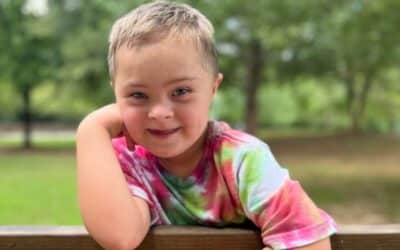Special Olympics is a sports program that provides opportunities for children and adults with intellectual disabilities to participate in sports, physical activities, and so much more. This program has been in existence for over 50 years and has grown to become a global movement. In this article, we will explore the communication, physical, and social-emotional benefits of participating in the Special Olympics program. We will also give an overview of Special Olympics and highlight what the program offers to its athletes and their community.

The Special Olympics Vision
The Special Olympics program was founded in 1968 by Eunice Kennedy Shriver. Her vision was to create a sports program that would provide opportunities for individuals with intellectual disabilities to participate in sports and physical activities. Since then, Special Olympics has grown to become a global movement. Over 5 million athletes in 190 countries participating in various programs.
Special Olympics Explained
Special Olympics provides opportunities for individuals with intellectual disabilities to participate in various sports and physical activities. This program is open to individuals two-years of age and up. It is designed to promote physical fitness, self-esteem, acceptance, community, and respect. Special Olympics offers a wide range of sports. A few of them include basketball, bowling, golf, gymnastics, powerlifting, soccer, swimming, tennis, track and field, and more. Special Olympics recently added esports to their offerings.
Communication benefits of participating in Special Olympics
Improved communication skills
Participation in Special Olympics can improve an athlete’s communication skills by providing opportunities to interact with coaches, peers, other athletes, their community, and supporters. This can lead to improved verbal and nonverbal communication skills, including listening, speaking, understanding and use of body language, and improved speaker confidence.

The Global Messenger program
The Global Messenger program is a communication and leadership training program offered by Special Olympics. This program provides individuals with intellectual disabilities with the tools and skills needed to become spokespeople, public speakers, advocates, and leaders within their communities. Through this program, individuals learn to give speeches, interact with the community and media, and promote awareness about the Special Olympics mission, events, and opportunities to support.
Increased confidence and self-esteem
Special Olympics can increase an athlete’s confidence and self-esteem by providing them with opportunities to set and achieve personal goals and compete within a supportive community. This can lead to increased feelings of self-worth and confidence, which can translate to improved communication skills and social interaction, and more.
Enriched social interaction
The Special Olympics program significantly boosts social interactions for its participants by creating numerous opportunities to engage with fellow athletes, coaches, volunteers, spectators, and supporters. This exposure leads to heightened self-assurance, improved social skills, better teamwork, greater cooperation, and an increased respect for both self and others.
Physical benefits of participating in Special Olympics
Improved motor skills
Participation in the Special Olympics offers individuals the chance to develop their motor skills by engaging in various physical activities that focus on coordination, balance, and agility. This experience contributes to the enhancement of both gross and fine motor skills, including skills like running, jumping, throwing, and catching, among many others.
Enhanced physical health
Involvement in the Special Olympics program enables athletes to enhance their overall physical health through consistent physical activity. Such engagement can foster better cardiovascular health, improved muscle strength, and enhanced coordination and flexibility.

Elevated physical fitness and endurance
Participating in Special Olympics can increase physical fitness and endurance by offering regular engagement in physical activity. This can result in improved physical performance, including increased speed, strength, precision, and stamina.
Social-emotional benefits of participating in Special Olympics
Expanded sense of belonging and acceptance
The Special Olympics program can offer athletes a sense of belonging and acceptance by providing opportunities to be part of a community of athletes, coaches, and volunteers who share common interests and goals. This can lead to increased feelings of inclusion and acceptance, which can translate to improved social and emotional well-being.
Boosted self-awareness and self-advocacy
Special Olympic athletes can increase self-awareness and self-advocacy through their many programs that expand awareness of their strengths and self-advocacy. This may result in increased self-confidence and a greater sense of personal control.
Elevated relationships with others
Participating in Special Olympics can foster and improve relationships with others by nurturing and strengthening relationships with coaches, other athletes, and supporters. This may enhance social skills, friendships, empathy, and a sense of connectedness with others.
FAQs
- Who is eligible to participate in Special Olympics?
Special Olympics is open to individuals with intellectual disabilities of all ability levels ages two-yeas through adulthood.
- How can I find a Special Olympics program in my area?
You can visit the Special Olympics website and search for programs in your area.
- Do athletes have to pay to participate in Special Olympics?
No, athletes do not have to pay to participate in Special Olympics programs.
- What types of sports are offered in Special Olympics?
Special Olympics offers a wide range of sports, including basketball, bowling, golf, gymnastics, soccer, track, swimming, and many more.
- How can I get involved with Special Olympics as a volunteer?
You can visit the Special Olympics website and search for volunteer opportunities in your area.
Additional Resources
- Special Olympics USA
- Special Olympics International
- Special Olympics World Games
- Special Olympics Young Athletes Program
- Special Olympics Unified Sports
- Special Olympics Healthy Athletes Program
Summary/Conclusion
Special Olympics presents a vast array of resources and experiences on local, national, and global levels for athletes, coaches, families, and supporters. Engaging in this program offers extensive benefits to children and adults with intellectual disabilities, including enhanced physical fitness, athletic skills, communication abilities, community engagement, and social-emotional well-being. Special Olympics offers a vibrant community where athletes, coaches, volunteers, and supporters, united by shared interests and aspirations, thrive together. If there’s a child or adult with special needs in your life, exploring Special Olympics’ offerings could be immensely beneficial. This community is dedicated to fostering a world where inclusion and acceptance are the norm for all.




0 Comments